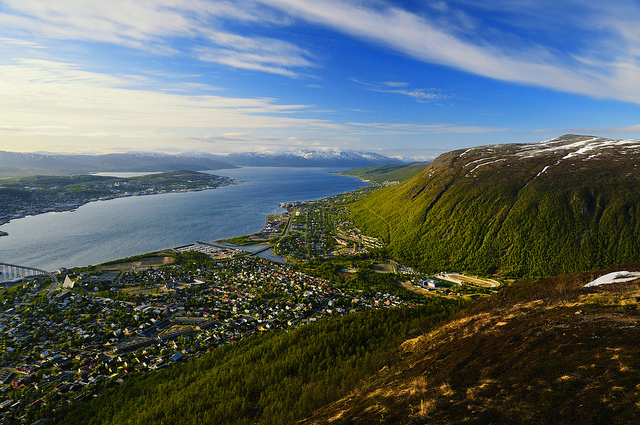A sense of time and change from an Arctic perspective
![]() Today was a humbling day. The landscape of Svalbard belittles you, and makes you feel like a child discovering the world. It’s like seeing the engine that drives the planet naked, stripped down to its bear parts (pun intended). Our instructors (of the UN Environmental Programme) and the boat’s guides are our instruction manual, enabling us to read this landscape and relate it to the world’s climate and politics as well as our personal narratives.
Today was a humbling day. The landscape of Svalbard belittles you, and makes you feel like a child discovering the world. It’s like seeing the engine that drives the planet naked, stripped down to its bear parts (pun intended). Our instructors (of the UN Environmental Programme) and the boat’s guides are our instruction manual, enabling us to read this landscape and relate it to the world’s climate and politics as well as our personal narratives.
What is amazing to me is that you can clearly see how natural forces have shaped every aspect of this landscape. The valley sides, exposed by the receding ice at the end of the last ice age are steeper than is stable and so are in a continual state of erosion. Pebbles and sand on the shoreline morph into a thin strip of tundra running parallel to the coast; this strip merges sharply into a 45 degree scree slope that rises some 200m before meeting a thick 100m band of vertical rock which was its parent. The dull rock where exposed is peppered with fiery red lichen giving its natural brown colour and orange twinge in the sunlight.
Even the young geological processes that have formed this valley’s recent features span the whole of human civilisation. Processes alien to our daily lives but innate to the earth/climate system that ultimately governs our planet. At the same time, some things here in the Arctic change rapidly. The weather can change in an hour from clear blue skies and sheet like oceans to wind, rain and an ocean speckled with white caps.
On current trajectories we could well see an ice free arctic in the summer within a generation. Such a process may well be irreversible on human timescales. I – we here on this trip may literally be one of the last generations to do this and see this unique habitat, this unique place at the top of our world. We are talking about a permanent voyage into the unknown, into a world alien to that which we have grown up in: a world less diverse in its cultures, less diverse in its environment.
We cannot make up for it later, with apologies, remorse or token efforts at recompense. But the fact remains that we still have a choice, we are not asleep at the wheel, just drunk driving. It’s time to sober up and realise that we have to take control of our future. We have to take responsibility, and we have to pay more attention to things that operate beyond the timescales that our daily lives suck us into. This we can learn from the Arctic.
By Sam Lee-Gammage
This post is an abridged version of a text taken from the British Council’s Arctic Climate Training blog Click here to learn more about the Arctic Climate Training project






